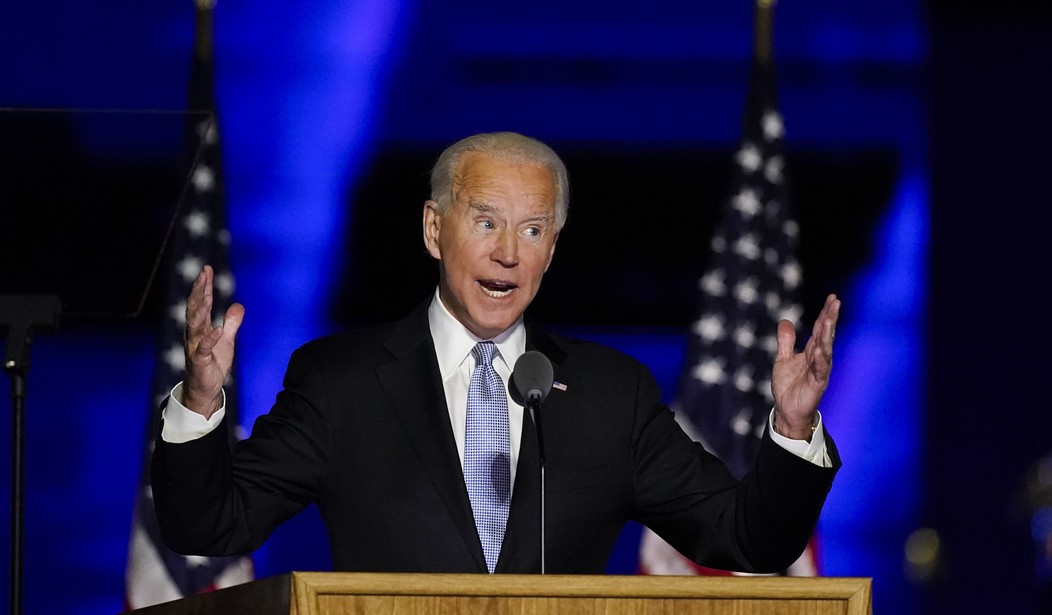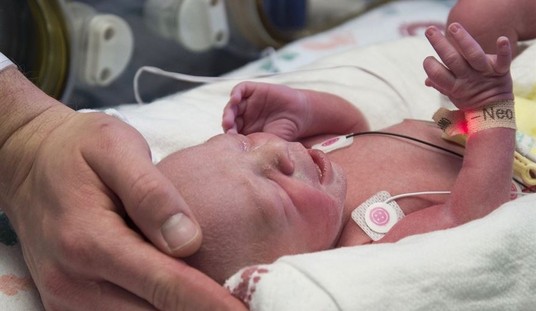Election 2020 has been rife with oddities from halted tallies to demographics to extraordinary allegations regarding technology. However, what is really odd is that it appears voters may have just elected the opposite of what they prefer. According to a poll from Rasmussen Reports, Americans have the highest level of agreement with President Ronald Reagan’s inaugural statement, “government is not the solution to our problem; government is the problem.”
A full 59% of likely voters agreed with that sentiment, the highest percentage since Rasmussen began asking the question 12 years ago. This included 50% of Democrats and 58% of unaffiliated voters. Additional results include:
Fifty-two percent (52%) prefer a smaller government with fewer services and lower taxes over a more active one with more services and higher taxes, down from 57% in May. Thirty-seven percent (37%) want bigger government instead, while 11% are not sure. Support for smaller government has ranged from 52% to 70% in regular surveying since 2006.
But when asked which is more likely if Joe Biden becomes the next U.S. president, 69% say a more active government with more services and higher taxes. Only 16% believe Biden is more likely to deliver a smaller government with fewer services and lower taxes. Fourteen percent (14%) are undecided.
Perhaps the reduction in the number of people who prefer a smaller government since May has to do with continued lockdowns in many areas of the country and the Democrats’ intransigence in negotiating a clean relief bill. However, it is clear almost 70% expect a President Biden to grow government. Since he has promised to expand Obamacare, put out national guidelines on COVID-19, and snap back crushing environmental regulations, this seems like a rational assumption.
Respondents also expect higher taxes under Biden. Since he has pledged to repeal the Tax Cuts and Jobs Act, this also seems like a legitimate view among 53% of those asked. While Biden has said that he won’t raise taxes on anyone who makes less than $400,000, a repeal of the Act would set every bracket back to the previous percentages and standard deductions. It is surprising that the number of people agreeing was not higher.
The poll does reflect the primary political argument that we should be having over policy:
While 58% of Democrats prefer a more active government with more services and higher taxes, 72% of Republicans and 56% of voters not affiliated with either major party opt instead for smaller government and lower taxes.
For those who prefer a smaller government footprint, gridlock is a good thing—72% prefer a divided government over single-party governance. With the two Senate run-offs in Georgia, they may get their wish, but it is not guaranteed. The only way to create legislative gridlock is for Republicans to hold a majority in the Senate.
However, this won’t prevent what Biden can accomplish through the federal agencies. For example, his commitment to reimplement the Affirmatively Furthering Fair Housing rules through the Department of Housing and Urban Development will affect local zoning in communities across the country. The rules will require the elimination of zoning for single-family homes and the construction of high-density low-income housing. He committed to the Cory Booker strategy of withholding highway funds to force compliance. This will not need congressional approval.
This will be similar to how environmental regulations will be implemented. Biden will be able to accomplish much of his climate agenda and policies to reduce carbon emissions through the EPA and other agencies rather than elected representatives. It would be interesting to see if voters expect their energy costs to rise right along with their taxes.
If the election results are approximately accurate, some portion of the electorate voted against their smaller-government preference and voted for Joe Biden. One has to wonder if mean tweets will seem so awful if Biden actually delivers on the agenda that Senator Bernie Sanders called the most progressive in American history. Buyer’s remorse will be evident if the preference for small government starts traveling back toward the 70% mark.
Then maybe we can get back to rational policy arguments. Arguments such as, do we need a little more government over here and a little less over there rather than deciding whether or not remaking our economic system and energy supply is a good idea.










Join the conversation as a VIP Member